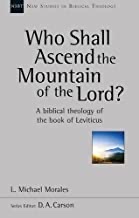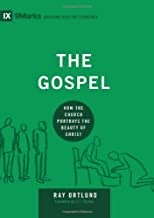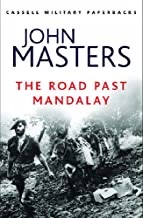Phil Remmers has recently published an article - Biblical Eldership and Global Missions A Vital and Necessary Union - on the 9Marks website, on the selection, training, and funding of missionaries, and especially on the relationship between missionaries and their sending church.
Remmers has had extensive experience of ministry in Asia and now is involved in publishing reformed literature in many Asian languages.
He writes many good things in the course of the article, for which I am thankful. The comments on funding are especially helpful, though hardly groundbreaking - people have been saying stuff like this for decades. But it is worth banging on about the broken system that has been developed and continues to be pursued. In fact, in my opinion he could have gone much further. Why, for instance, is a family needing $8000 a month for their salary? I can imagine some situations - ministry in Singapore or Tokyo, for instance, where this level of support is necessary. But if, as I have observed myself many times among certain mission organisations, the family is living in a posh compound with a brand new imported jeep, in a community in which even well off locals can only dream of that lifestyle, further questions need to be asked.
He says that at least half of the missionaries he encountered in his ministry location (unspecified for security reasons) should not have been there at all because they were unqualified for the ministry and in any case tended only to stay for 2-3 years and leave without bearing fruit. And that is not counting 'short-term missionaries'.
Although I can see how he can come to such a judgment, I am uneasy about this. He affirms, in a footnote, that God is sovereign in salvation. But he nevertheless is happy to sit in judgment on the fruitfulness of others in ministry. How can he have sufficient knowledge about the relationships these folk had developed in their short time? And even if he did have that sort of data, real spiritual fruit is often unseen. I hope he is not ashamed on the Last Day for having written that.
The main burden of the paper, though, is to argue that all missionaries should first of all be elders of the local church back home before they are appointed to their ministry overseas. I get the sentiment. After all, as the argument goes, why would we send out people for ministry in hard places overseas if we wouldn't have them be involved in ministry at home? Fair question. He has diagnosed a serious missionary malady.
But Remmers' remedy is unbiblical, naive, and worldly.
Unbiblical
In Acts 13 the Antioch church sent out two of their 'prophets and teachers' - Barnabas and Saul. There does seem to be something of a paradigmatic character to this story, situated as it is in the unfolding story of the expansion of the gospel to the ends of the earth. And yet Paul was happy to have all sorts on his apostolic team: Luke the doctor, for example; Timothy, who, we are told, was a 'disciple' when he was taken on by Paul as a travelling companion (Acts 16:1-3); Erastus, who along with Timothy is called Paul's 'helper' (Acts 19:22).
When Paul left Corinth he was accompanied by Priscilla and Aquila (Acts 18:18). Now I suspect (since this is on 9Marks) that Remmers would not be happy with female elders. So what does he do with Priscilla? Is she not a missionary?
Naive
This leads on to the training of missionaries. The best missionaries the author has encountered tended to have been trained at Master's Seminary, where the training is explicitly for elders. Now, as I have said, much that he says here is valuable. Better, he says, to have fewer, better trained, and proven missionaries, than the mess that he has seen.
But he overstates his case. And the reason he does that is this: he has not diagnosed the malady correctly. The disease is much more serious than he realises. It is not just the two- to three-year, untrained, unqualified missionaries who are caught up in the problem. It is a whole lot more, including, perhaps Remmers himself.
Worldly
Remmers is operating out of a paradigm for cross-cultural ministry that has been weighed in the balances and been found wanting.
It comes out in numerous ways and is exemplified in the uncritical use of the term 'missionary'. As I have explained here before, this term, and the notion it represents is seriously problematic. It is not a biblical word and continues to have much baggage that seriously compromises a healthy approach to cross-cultural ministry, including the financial aspect mentioned earlier.
Remmers observes that Master's Seminary has no missions professors but that their graduates are "both biblically qualified and are able to use their gifts in a foreign language and culture" - without any training in intercultural communication, or in understanding how other cultures operate, or in appreciating anything about how other workers have fared in previous generations, or in examining the state of churches in the nations to which they are sent. (This is an issue I have addressed frequently, such as here.)
Remmers' seems to have no appreciation of how culture-bound his view of cross-cultural ministry is. This lack of self-awareness is the chief weakness of the article and why I do not commend it.














